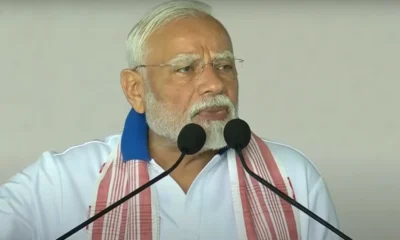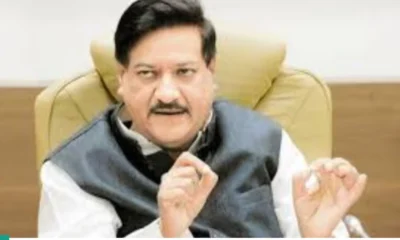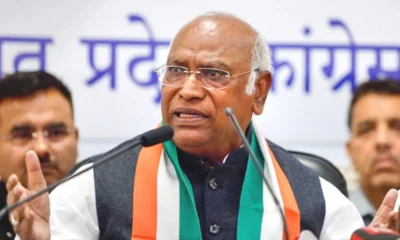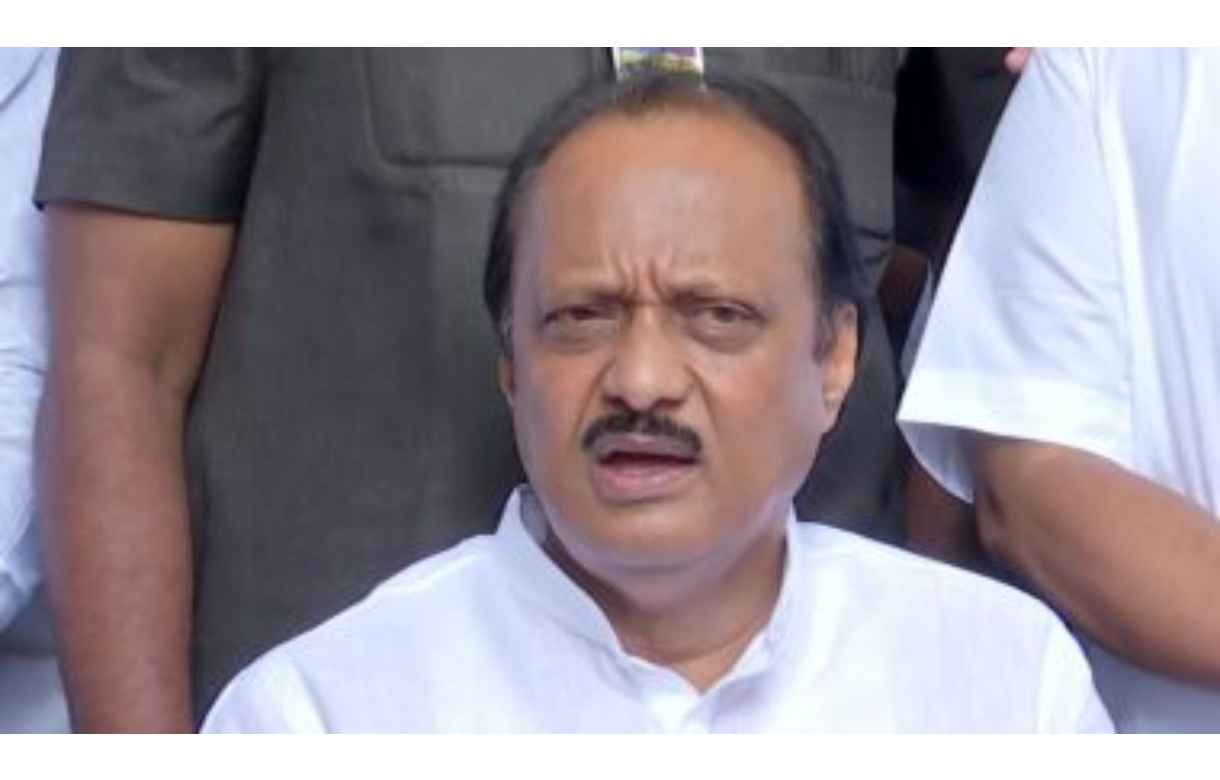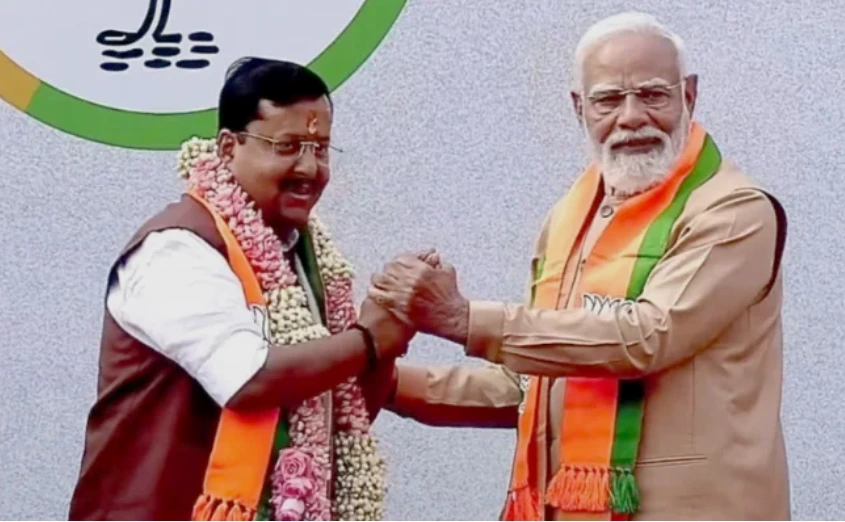~By Rajesh Sinha
The four-year-old NDA government led by Prime Minister Narendra Modi faces its first motion of no-confidence on Friday, July 20.
Lok Sabha Speaker Sumitra Mahajan, who had repeatedly turned down notices for such a motion during the Budget session, on Wednesday admitted a notice moved by the Telugu Desam Party. While the outcome of a confidence vote was a foregone conclusion – even in the Budget session – the opposition parties intend to use it to make an all out attack on the government on a range of issues: In the normal course, they would have to give notice for a discussion on each of the topics separately. A no-confidence motion removes this limitation.
BJP was wary of having such a debate during Budget session, with the crucial Karnataka assembly election – for BJP under Amit Shah’s presidentship, every election is crucial – about to come up.
Now, the BJP leadership reckons, it suits the party. Media reports quoting BJP sources said that the change in the government’s approach to allow the no-confidence vote was driven by party president Amit Shah. He convinced the rest of the leadership that the debate on the no-confidence motion would afford the government the opportunity to expose the Opposition narrative and also its lack of unity.
The BJP felt that once the no-trust vote is debated and defeated, the Opposition would not have any excuse to disrupt proceedings of the House.
Prime Minister Narendra Modi, who will reply to the debate, is expected to use the occasion as a launching pad for the 2019 campaign.
“We will put the welfare schemes and development projects carried out by the government in last four years before the people,” said Parliamentary Affairs Minister Ananth Kumar.
A BJP leader said the government’s numbers would also work to its advantage as more lawmakers from the ruling coalition would get an opportunity to speak on the motion than the Opposition because of its sheer strength in the Lok Sabha: Parties are allocated time in debates according to their strength in parliament.
The debate on the motion is likely to go on beyond the normal time of 6 pm for the House. PM Narendra Modi, who will be the last speaker in the debate, will have people of the country watching him as they come home and sit down to watch TV.
The PM’s speech is expected to be a veritable launch of his Lok Sabha election campaign.
Some analysts wrote that the PM could use the no-confidence motion debate to call for an early election. Winning the vote to retain his projected image of being ‘unbeatable’ would be an opportune time, especially in view of the weak footing the BJP finds itself in for the assembly polls in Chhattisgarh, Rajasthan, Madhya Pradesh and Mizoram Assembly polls in November-December.
Modi-Shah led BJP, which has been rooting for simultaneous elections, would stand a better chance if the Lok Sabha polls are also called at the same time, argue these analysts.
The Opposition would hope its speakers succeed in conveying to the people why nearly all Opposition parties are against the Modi government. They will speak on a host of issues – price rise, lynchings, Jammu & Kashmir, foreign policy, flight of capital, increase in deposits by Indians in Swiss banks, fleeing of economic offenders from India, atrocities on Dalits and security of women.
The Congress was not too happy at TDP’s motion being admitted. Eight notices of no confidence in the Council of Ministers were received as the monsoon session of Parliament commenced. Three notices came from the TDP, two from the Congress, and one each from the NCP, CPM, and RSP.
The Speaker allowed TDP MP Kesineni Srinivas’ notice given to protest denial of a special package for Andhra Pradesh. She said Srinivas’ notice was the “first in point of time”, said some media reports (– though some others said it was done by lottery; the confusion remains).
Mallikarjun Kharge, Congress’ designated leader in Lok Sabha, reportedly made his party’s displeasure known on the floor of the House at the Speaker’s decision.
The reason is, it is the party which initiates the motion that will open the debate and get enough time to make its point. All other parties would get time as per their strength, and those parties would have to make adjustments accordingly, especially if they have more than one speaker.
The BJP and most of media hype is about the result of the no-confidence vote and the numbers game. That, however, is no secret. The 13-party NDA has 315 MPs in the House where the current effective strength is 536, instead of 545, there being nine vacancies. The government needs 269 votes to defeat the no-confidence motion.
The BJP has 274, including rebel MPs Shatrughan Sinha and Kirti Azad who stand to lose their membership if they defy the party whip to vote against the motion.
The UPA comprising the Congress, NCP, RJD, IUML, JMM and Kerala Congress Mani, has 64 MPs. The Congress has 48.
Other parties, including Independents, have 157 MPs.
The numbers explain the quickness with which the Speaker returned after lunch break to list discussions on the no-confidence motion on July 20. She said the entire business of the House, question hour, zero hour and private members’ Bills, will be suspended that day to take up the notice.
It was false confidence shown by Sonia Gandhi when she said: “Who told you the Opposition does not have the numbers?”
But then, one rarely ever says ‘we know are going to lose’.

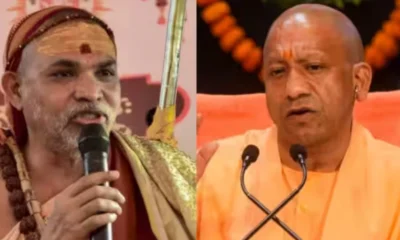
 India News15 hours ago
India News15 hours ago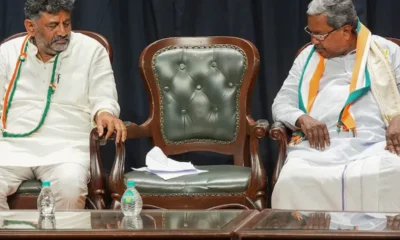
 India News15 hours ago
India News15 hours ago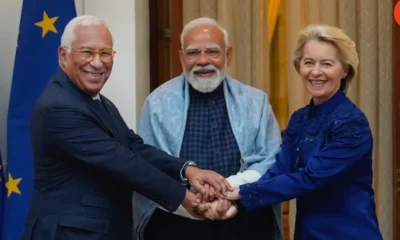
 Latest world news13 hours ago
Latest world news13 hours ago
 India News1 hour ago
India News1 hour ago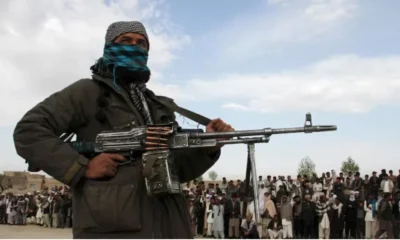
 Latest world news2 hours ago
Latest world news2 hours ago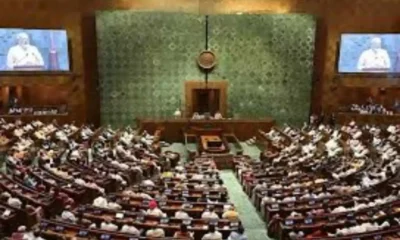
 India News1 hour ago
India News1 hour ago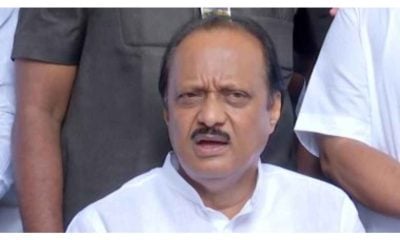
 India News31 mins ago
India News31 mins ago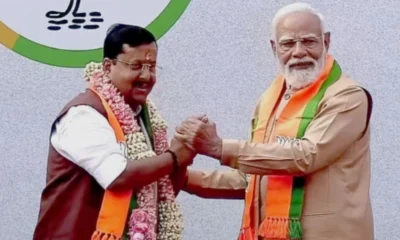
 India News53 mins ago
India News53 mins ago






